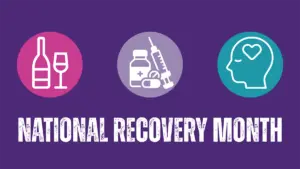If you want a different way to heal from addiction, experiential therapy might be just what you need. This therapy lets you do activities that help you understand yourself better and move forward in your recovery.
Below, we’ll cover the different types of experiential therapy and who benefits most from this style of therapy.

What Is Experiential Therapy?
Experiential therapy is a type of therapy that uses hands-on activities to help you explore your feelings. Instead of only talking, you might paint, draw, play music, role-play, care for animals, or take part in guided imagery or outdoor activities. These experiences give you a safe way to act out past events and express feelings you may have buried, such as anger, shame, or sadness.
In this therapy, the focus is on “what you do.” While you’re engaged in an activity, a therapist helps you notice feelings that arise. You may uncover emotions tied to past pain or family struggles. Working through them helps you understand yourself better and gain confidence.
Sometimes, talking alone doesn’t help. That’s when experiential therapy can be powerful. For example, a study in the Journal of Genetic Counseling looked at a pediatric case of a 7-year-old boy who had autism. They were visiting a genetics clinic to see if there was a related disorder. In a hypothetical second counseling session, the therapist used experiential family therapy to support the parents, who were struggling in their marriage.
Here’s how three techniques might help in that session:
- Family Drawing – The family is asked to draw a picture of themselves. This reveals how each person sees their role and feelings within the family without needing to explain everything with words.
- Empty Chair Technique – Each parent takes turns speaking to an “empty chair,” pretending the other person is sitting there. This helps each partner say things they might not say face-to-face.
- Continuums – Each parent places themselves on a line that represents a feeling (like “angry to calm” or “connected to distant”). This makes it easier to talk about emotions and how they see the relationship.
These activities help people open up in new ways. They allow families and individuals to grow, connect, and begin healing.
How Experiential Therapy Supports Addiction Recovery
Addiction often starts as a way to escape pain, shame, anger, or fear. You might not even realize how much those feelings are affecting you. Experiential therapy gives you a safe way to face those emotions. When you’re busy doing something creative or physical, it’s easier to open up and let your true feelings come out.
During these sessions, a therapist guides you. This type of therapy also builds confidence. As you try new things and express yourself, you learn that you can face hard feelings without running to drugs or alcohol. You also learn better ways to cope, like how to calm yourself down, express anger safely, or talk about your needs.
Experiential therapy works well with other treatments, too. It doesn’t replace group therapy, 12-step programs, or counseling; it adds to them. It helps you go deeper, especially when talking just isn’t enough. If you’ve struggled with recovery before, or if you have a hard time putting your feelings into words, experiential therapy might be the missing piece you need.
Types of Experiential Therapy Techniques
Experiential therapy includes many hands-on methods. These activities help you express feelings, face past experiences, and build healthier ways to cope. Here are some of the most common types used in addiction treatment:
1. Art Therapy
You use painting, drawing, or sculpting to express yourself. You don’t need to be an artist. The goal is to let out feelings you might not be able to say out loud. Your art can show sadness, anger, fear, or hope.
2. Music Therapy
Music can help you relax, feel emotions, or connect with memories. You might play instruments, write songs, or listen to music. Music therapy can lift your mood and give you a safe way to process pain or trauma.
3. Equine-Assisted Therapy
This therapy involves working with horses. You might groom, walk, or care for them. Horses respond to your behavior and mood, which helps you become more aware of your emotions and how you interact with others. It helps build trust, patience, and self-control.
4. Adventure or Wilderness Therapy
You take part in outdoor activities like hiking, rock climbing, or camping. These challenges help build confidence, teamwork, and trust. Being in nature can also lower stress and help you think more clearly.
5. Role-Playing and Gestalt Techniques
In role-playing, you take on different roles – maybe your younger self or someone you’re angry with. This helps you understand their point of view and your own. Gestalt therapy focuses on what you’re feeling in the moment, helping you stay aware of how your body and mind react during certain situations.
Note: Behavioral therapies like CBT (Cognitive Behavioral Therapy) and DBT (Dialectical Behavior Therapy) can work well with experiential therapy.
- CBT helps you change negative thoughts and behaviors.
- DBT teaches you how to handle strong emotions and improve relationships.
For instance, after a role-play or art session brings up strong feelings, a therapist might use CBT or DBT techniques to help you make sense of what you felt and what to do next.
These approaches can support each other in addiction recovery. Together, they help you think better, feel better, and heal more completely.
Benefits of Experiential Therapy in Substance Use Treatment
Experiential therapy helps you heal by doing, not just talking, and that can make a big difference in your recovery journey.
1. You Express Emotions in a Safe Way
Sometimes it’s hard to talk about how you feel. Through art, music, or role-play, you can let out emotions like anger, sadness, or fear without using words. This helps you stop holding everything inside.
2. You Understand Yourself Better
When you take part in activities, you start to notice how you react, what triggers you, and where your pain comes from. This self-awareness helps you make smarter choices and avoid falling back into old habits.
3. You Face the Past and Begin to Heal
Acting out past events or working with symbols (like drawings or objects) helps you deal with memories you may have tried to forget. Facing them in a new way gives you power over them.
4. You Build Trust and Connection
Some experiential therapies, such as group role-play or working with animals, teach you how to trust again. You learn how to open up to others and connect in healthier ways.
5. You Learn New Ways to Cope
Instead of turning to drugs or alcohol, you learn how to manage stress, sadness, or anger through healthy activities. These new skills help you stay strong in recovery.
6. You Feel More Confident
Trying new things (even small ones) can help you feel proud of yourself. That confidence can carry over into other parts of your life, like work, family, and friendships.
Experiential therapy gives you real ways to grow, feel, and move forward. It’s not just about talking; it’s about doing the work to heal.
Who Is Experiential Therapy Best For?
Experiential therapy can help many people, but it works especially well if you have trouble talking about your feelings or past experiences.
It may be a good fit for people who:
- Have been through trauma or deep emotional pain – If you’ve had a tough childhood, abuse, loss, or other painful events, experiential therapy helps you face those memories in a safe, hands-on way.
- Struggle to open up in talk therapy – Some people find it hard to talk about their feelings or don’t always have the words. With experiential therapy, you can express yourself through art, movement, or role-playing instead.
- Feel stuck in your recovery – If you’ve tried other types of therapy but haven’t made progress, this approach can help you get “unstuck” by connecting more deeply with your emotions.
- Learn better by doing, not just talking – If you like to be active, creative, or hands-on, experiential therapy fits your style. You’ll learn through doing, not just sitting and listening.
- Have anger, shame, or guilt that you haven’t dealt with – Many people in recovery carry heavy emotions. Experiential therapy helps you work through those feelings in a way that feels less scary and more natural.
- Want to build better relationships – This therapy often helps with trust, communication, and empathy. These skills are key to building strong, healthy connections with others.
If any of this sounds like you, experiential therapy might be a powerful part of your healing process.
At South Coast Counseling, you’ll find a supportive space where experiential therapy comes alive through nature and creativity. We offer different hands-on activities designed to help you heal and grow in your recovery.








